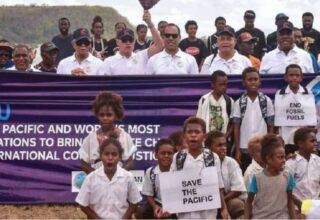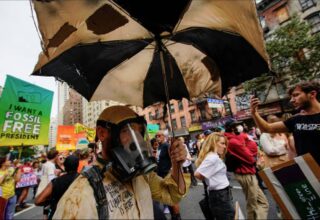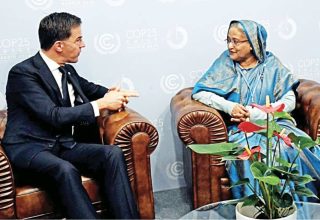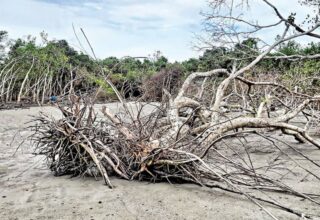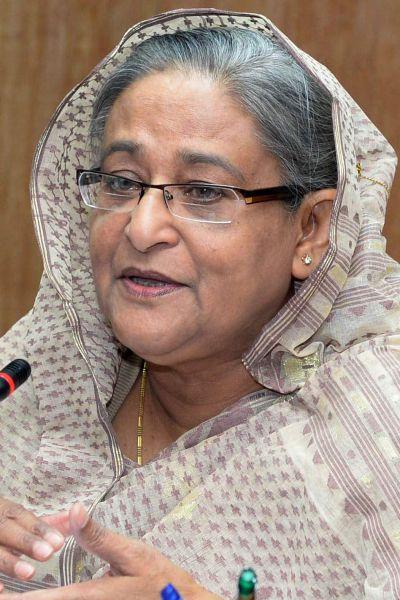
Over the last two decades, the issue of global climate change has shifted from being primarily an environmental issue to a global security and diplomatic issue as well. Hence many countries have shifted responsibility from the ministry of environment to the foreign ministry as the focal ministry to handle the issue.
This is also a reflection of the fact that the United Nations Framework Convention on Climate Change (UNFCCC) is no longer the only forum, or even the most important forum, where this issue is being discussed and decisions being taken at the international level.
This was reflected in the recent Security Council meeting on climate change in New York, where the Bangladesh permanent representative to the UN was invited to speak. Also, in the recently held Munich Security Conference in Germany, Prime Minister Sheikh Hasina was invited to speak. In both their speeches, the issue of climate change as a global security issue was highlighted.
It is therefore high time for Bangladesh to make climate change diplomacy an integral part of the training and capacities of all our foreign service officers going forward.
First, the Foreign Service Academy should make climate change diplomacy an integral part of the training programme for every new batch of foreign service officers. This was done last year on a pilot basis, which proved quite successful, but should become an integral part of every year’s training courses.
The second thing to do would be to identify a small group of senior foreign service officers with previous experience in UN systems in New York, Geneva, Nairobi, etc., who could be the leaders on climate change related diplomatic issues. There are quite a few such senior diplomats who have relevant knowledge and experience.
The foreign office can convene a group of experts on climate change and climate change diplomacy who can continuously advise the diplomats on the current state of knowledge and science when needed. Again, Bangladesh has many such experts to draw on who would be more than willing to provide such advice.
Some countries, both developed and developing ones, have even appointed a senior diplomat as the climate change envoy. This is something that Bangladesh may also consider going forward.
At the same time, the Ministry of Environment, Forests and Climate Change can continue to lead the negotiations in the UNFCCC as well as give advice to diplomats in the non-UNFCCC context.
In this regard, one of the most important global meetings coming up in September this year is the Climate Summit in New York called by the United Nations Secretary General António Guterres. Unlike the UNFCCC meetings where every decision has to be reached through consensus of nearly 200 countries, the Climate Summit will only have leaders who are taking action to tackle climate change. Hence this is a very important global event which will hopefully move the world towards action to tackle climate change through developing coalitions of the willing.
Prime Minister Sheikh Hasina has been invited to the Climate Summit by the UNSG and also by UK Prime Minister Theresa May who will lead the session on climate resilience. If she accepts these invitations, it will be another opportunity for Bangladesh to be seen as a global leader tackling climate change.
One of the reasons for Bangladesh being recognised as a country to be taken seriously and listened to is our vulnerability to the adverse impacts of climate change. However, from now on, the emphasis of our climate change diplomacy should not be to highlight our vulnerability (which remains a fact) but to change the narrative to becoming one of the most resilient countries.
In this respect, we can also share with other Least Developed Countries (LDCs) our experiences in tackling climate change. This can be done through the annual Gobeshona conference on climate change held every January in Dhaka. At the sixth annual Gobeshona conference to be held in January 2020, the platform can be a global knowledge-sharing event where Bangladesh can invite the rest of the world to come and learn from Bangladesh how to tackle climate change.
Originally this article was published on February 20, 2019 at Daily Star. The author Dr. Saleemul Huq is the director of the International Centre for Climate Change and Development (ICCCAD) at the Independent University, Bangladesh (IUB).
Email: saleemul.huq@icccad.net


